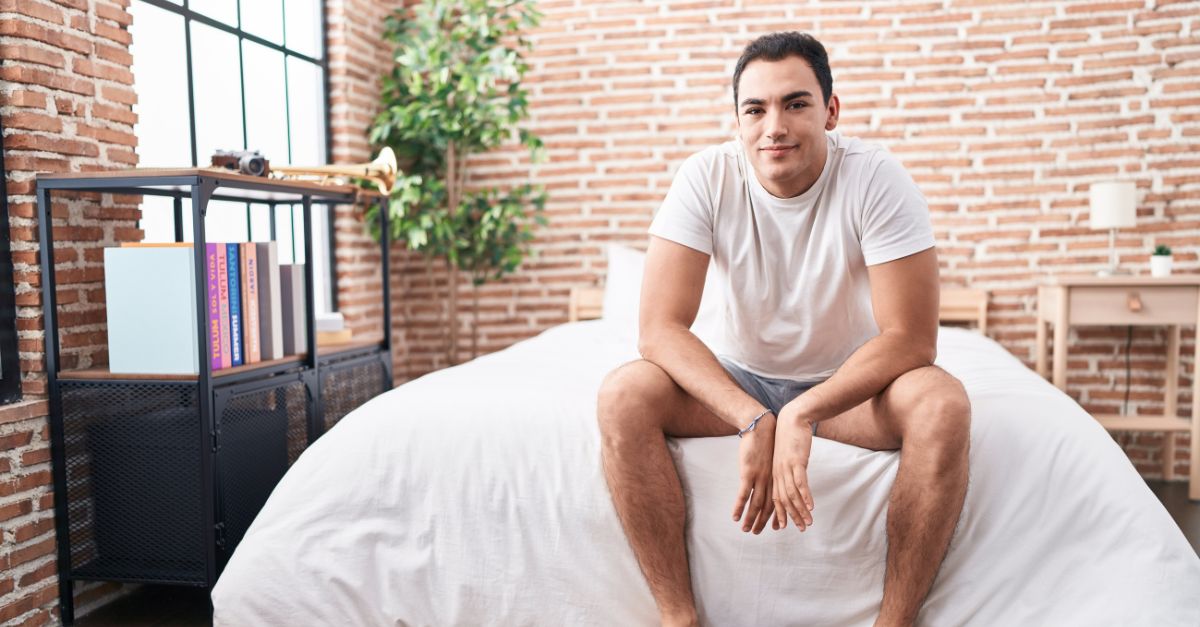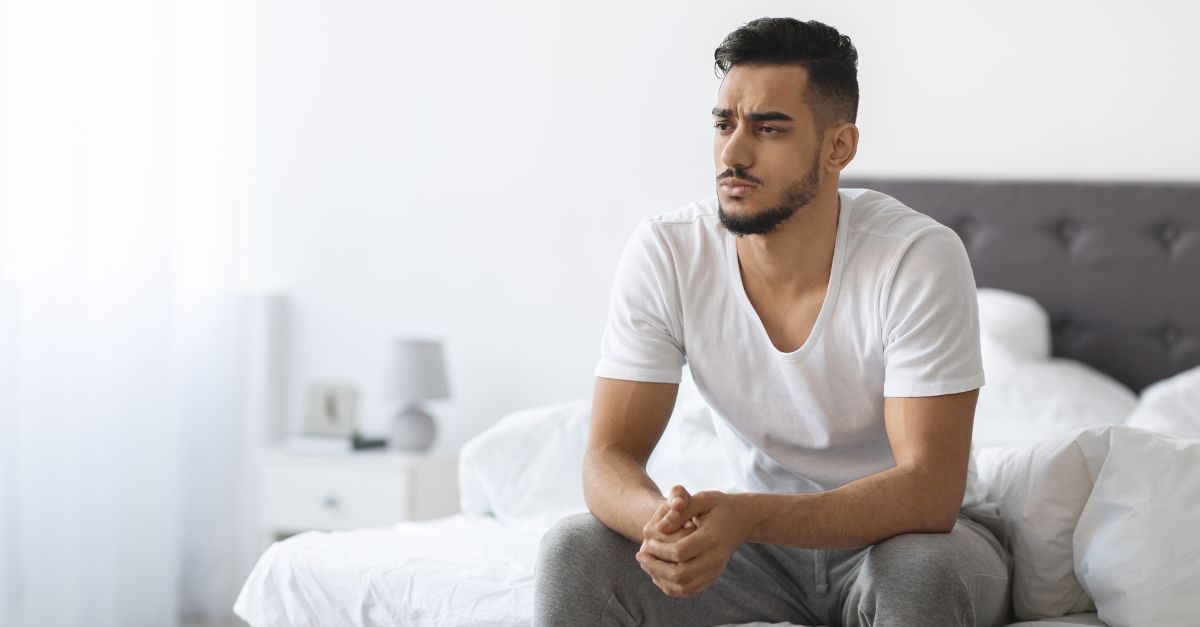Navigating Anxiety in Bed: Practical Tips for Men
Sexual anxiety, commonly known as performance anxiety, affects countless men, often impacting their confidence, relationships, and ultimately their overall well-being. Anxiety around sexual performance can manifest as fear of inadequacy, concerns about satisfying a partner, or worry over physical performance. Fortunately, understanding the root causes and incorporating effective stress management techniques can significantly reduce anxiety and enhance sexual confidence. In this guide, you will find practical, action tips for managing sexual anxiety that empower men to reclaim their sexual well-being and foster much healthier, more fulfilling relationships.
Understanding Sexual Anxiety
Sexual anxiety looks like excessive worry or fear about sexual performance or intimacy. Signs of it typically include:
- Fear of Failure: Concerns about not achieving or maintaining an erection or satisfying your partner.
- Pressure and Expectations: Internal or perceived external expectations to perform sexually.
- Negative Self-image: Self-doubt about physical appearance, sexual capability, or desirability.
Understanding these components is essential to effectively managing and overcoming sexual anxiety.
Common Causes of Performance Anxiety
Several factors can contribute significantly to sexual anxiety in men:
- Societal Expectations: Cultural messages emphasizing male sexual prowess and performance.
- Past Negative Experiences: Previous experiences of sexual difficulties or criticism from partners.
- Stress and Fatigue: General life stressors like work pressures, financial worries, or exhaustion.
- Health Concerns: Physical health issues affecting sexual performance, such as erectile dysfunction or hormonal imbalances.
Impact of Performance Anxiety on Men
Performance anxiety significantly impacts emotional health, relationships, and sexual satisfaction:
- Reduced Sexual Confidence: Persistent anxiety erodes confidence and increases fear of intimacy.
- Relationship Tension: Anxiety-related sexual avoidance or performance struggles create emotional distance and misunderstandings.
- Decreased Sexual Pleasure: Anxiety inhibits relaxation, limiting sexual enjoyment and fulfillment.
- Increased Stress Levels: Sexual anxiety contributes to overall stress, negatively impacting emotional and physical health.
Practical Stress Management Techniques
Implementing effective stress management techniques significantly reduces sexual anxiety:
1. Mindfulness and Relaxation
Mindfulness exercises promote relaxation, reduce anxiety, and enhance sexual enjoyment:
- Deep Breathing: Slow, intentional breathing calms the nervous system, reducing anxiety.
- Meditation and Mindfulness Practices: Regular mindfulness meditation fosters present-moment awareness, reducing intrusive thoughts about performance.
- Progressive Muscle Relaxation: Gradually tensing and relaxing muscle groups alleviates physical tension, enhancing relaxation and comfort during intimacy.
2. Cognitive Reframing
Challenging negative thoughts and reframing them positively reduces anxiety:
- Identify Negative Thoughts: Recognize performance-related worries or negative self-talk.
- Challenge and Reframe: Replace negative thoughts with realistic, affirming statements emphasizing intimacy and connection rather than performance.
3. Communication and Openness
Openly discussing anxieties with your partner significantly reduces stress and enhances emotional intimacy:
- Express Concerns: Honestly share anxieties to create mutual understanding and empathy.
- Mutual Support: Foster supportive, patient communication, enhancing emotional safety and connection.
Practical Tips to Overcome Performance Anxiety
Incorporate practical strategies to manage and reduce sexual anxiety effectively:
1. Prioritize Emotional Intimacy
Focusing on emotional connection rather than performance significantly alleviates anxiety:
- Engage in non-sexual activities, enhancing emotional closeness.
- Practice affectionate, non-sexual touch to foster comfort and connection.
2. Gradual Exposure and Practice
Gradual exposure to anxiety-provoking sexual situations reduces anxiety over time:
- Start with less anxiety-provoking intimate activities, gradually progressing as comfort increases.
- Practice mindfulness and relaxation techniques during gradual exposure to manage anxiety effectively.
3. Establish Realistic Expectations
Setting realistic sexual expectations reduces pressure and performance-related anxiety:
- Focus on mutual pleasure and intimacy rather than specific sexual outcomes.
- Acknowledge and embrace that variations in sexual performance are normal.
Real-Life Experiences: Overcoming Sexual Anxiety
Consider Sam, who experienced persistent performance anxiety due to societal pressures and negative past experiences. Incorporating mindfulness exercises, open communication with his partner, and cognitive reframing significantly reduced Sam’s anxiety, which enhanced his confidence, intimacy, and satisfaction in his relationship. Sam shared, “Learning to manage my anxiety transformed my sex life and emotional connection with my partner.”
Similarly, Jason faced anxiety around sexual intimacy due to stress and performance expectations. By implementing stress management techniques, prioritizing emotional intimacy, and gradually engaging in intimate situations, Jason’s sexual confidence and satisfaction drastically improved. Jason explained, “Lowering my sexual anxiety definitely improved my emotional well-being, and my relationship with my wife is so much better.”
Professional Support for Managing Sexual Anxiety
Persistent sexual anxiety can significantly improve with professional intervention. Therapy or counseling offers:
- Tailored interventions addressing specific sources of anxiety.
- Emotional regulation strategies to reduce performance-related stress.
- Effective communication tools for enhancing intimacy and mutual understanding.
Sustainable Practices for Ongoing Anxiety Management
Maintaining anxiety long-term requires consistent, proactive, steady habits that support both you and your relationship:
- Regular Mindfulness Practice: Consistently incorporate mindfulness exercises, enhancing relaxation and reducing anxiety.
- Continuous Communication: Regularly discuss emotional and sexual needs with your partner to gain mutual understanding and emotional closeness.
- Healthy Lifestyle Choices: Maintaining a balanced diet, regular physical activity, and adequate sleep can significantly reduce anxiety levels.
Intimacy Advice: Enhancing Confidence and Satisfaction
Elevating confidence significantly reduces anxiety:
- Positive Self-Affirmation: Regularly practice affirmations reinforcing positive self-image and sexual confidence.
- Open Partner Communication: Foster ongoing dialogue about desires, boundaries, and emotional intimacy.
- Consistent Self-Care: Prioritize both emotional and physical self-care to enhance overall well-being and confidence.

Final Thoughts: Navigating Anxiety for Enhanced Sexual Health

Navigating sexual anxiety through practical, effective stress management techniques significantly helps improve emotional intimacy, sexual confidence, and relationship satisfaction. Understanding sources of anxiety, implementing mindfulness practices, fostering open communication, and prioritizing emotional connection will transform your sexual experiences, fostering profound emotional closeness and mutual satisfaction.
Remember, experiencing sexual anxiety is common, manageable, and does not define your worth or capability. Proactively managing anxiety through intentional effort, effective communication, and professional support fosters deeper emotional intimacy, healthier relationships, and overall sexual wellness.
Ready to effectively manage your sexual anxiety, skyrocket your confidence, and significantly improve satisfaction? Contact me today to discuss personalized strategies to reduce anxiety, enhance intimacy, and achieve profound sexual fulfillment.


